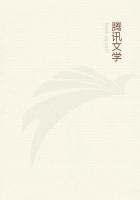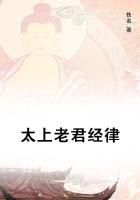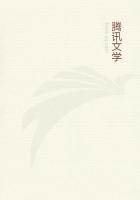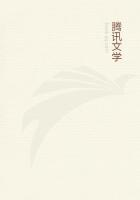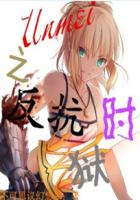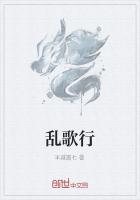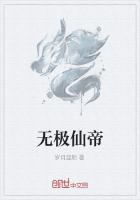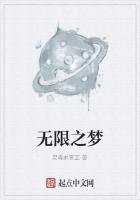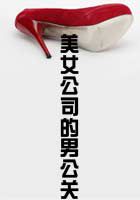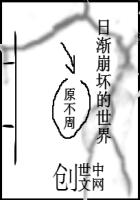Old as a cathedral, painted like a miniature, sumptuous in dress, she lived in her great house as though Louis XV. were not dead, and saw none but old women and men of a past day,--a fossil society which made me think I was in a graveyard. No one spoke to me and I had not the courage to speak first. Cold and alien looks made me ashamed of my youth, which seemed to annoy them. I counted on this indifference to aid me in certain plans; I was resolved to escape some day directly after dinner and rush to the Palais-Royal. Once seated at whist my aunt would pay no attention to me. Jean, the footman, cared little for Monsieur Lepitre and would have aided me; but on the day I chose for my adventure that luckless dinner was longer than usual,--either because the jaws employed were worn out or the false teeth more imperfect. At last, between eight and nine o'clock, I reached the staircase, my heart beating like that of Bianca Capello on the day of her flight; but when the porter pulled the cord I beheld in the street before me Monsieur Lepitre's hackney-coach, and I heard his pursy voice demanding me!
Three times did fate interpose between the hell of the Palais-Royal and the heaven of my youth. On the day when I, ashamed at twenty years of age of my own ignorance, determined to risk all dangers to put an end to it, at the very moment when I was about to run away from Monsieur Lepitre as he got into the coach,--a difficult process, for he was as fat as Louis XVIII. and club-footed,--well, can you believe it, my mother arrived in a post-chaise! Her glance arrested me; Istood still, like a bird before a snake. What fate had brought her there? The simplest thing in the world. Napoleon was then making his last efforts. My father, who foresaw the return of the Bourbons, had come to Paris with my mother to advise my brother, who was employed in the imperial diplomatic service. My mother was to take me back with her, out of the way of dangers which seemed, to those who followed the march of events intelligently, to threaten the capital. In a few minutes, as it were, I was taken out of Paris, at the very moment when my life there was about to become fatal to me.
The tortures of imagination excited by repressed desires, the weariness of a life depressed by constant privations had driven me to study, just as men, weary of fate, confine themselves in a cloister.
To me, study had become a passion, which might even be fatal to my health by imprisoning me at a period of life when young men ought to yield to the bewitching activities of their springtide youth.
This slight sketch of my boyhood, in which you, Natalie, can readily perceive innumerable songs of woe, was needful to explain to you its influence on my future life. At twenty years of age, and affected by many morbid elements, I was still small and thin and pale. My soul, filled with the will to do, struggled with a body that seemed weakly, but which, in the words of an old physician at Tours, was undergoing its final fusion into a temperament of iron. Child in body and old in mind, I had read and thought so much that I knew life metaphysically at its highest reaches at the moment when I was about to enter the tortuous difficulties of its defiles and the sandy roads of its plains. A strange chance had held me long in that delightful period when the soul awakes to its first tumults, to its desires for joy, and the savor of life is fresh. I stood in the period between puberty and manhood,--the one prolonged by my excessive study, the other tardily developing its living shoots. No young man was ever more thoroughly prepared to feel and to love. To understand my history, let your mind dwell on that pure time of youth when the mouth is innocent of falsehood; when the glance of the eye is honest, though veiled by lids which droop from timidity contradicting desire; when the soul bends not to worldly Jesuitism, and the heart throbs as violently from trepidation as from the generous impulses of young emotion.
I need say nothing of the journey I made with my mother from Paris to Tours. The coldness of her behavior repressed me. At each relay Itried to speak; but a look, a word from her frightened away the speeches I had been meditating. At Orleans, where we had passed the night, my mother complained of my silence. I threw myself at her feet and clasped her knees; with tears I opened my heart. I tried to touch hers by the eloquence of my hungry love in accents that might have moved a stepmother. She replied that I was playing comedy. Icomplained that she had abandoned me. She called me an unnatural child. My whole nature was so wrung that at Blois I went upon the bridge to drown myself in the Loire. The height of the parapet prevented my suicide.
When I reached home, my two sisters, who did not know me, showed more surprise than tenderness. Afterwards, however, they seemed, by comparison, to be full of kindness towards me. I was given a room on the third story. You will understand the extent of my hardships when Itell you that my mother left me, a young man of twenty, without other linen than my miserable school outfit, or any other outside clothes than those I had long worn in Paris. If I ran from one end of the room to the other to pick up her handkerchief, she took it with the cold thanks a lady gives to her footman. Driven to watch her to find if there were any soft spot where I could fasten the rootlets of affection, I came to see her as she was,--a tall, spare woman, given to cards, egotistical and insolent, like all the Listomeres, who count insolence as part of their dowry. She saw nothing in life except duties to be fulfilled. All cold women whom I have known made, as she did, a religion of duty; she received our homage as a priest receives the incense of the mass. My elder brother appeared to absorb the trifling sentiment of maternity which was in her nature. She stabbed us constantly with her sharp irony,--the weapon of those who have no heart,--and which she used against us, who could make her no reply.

